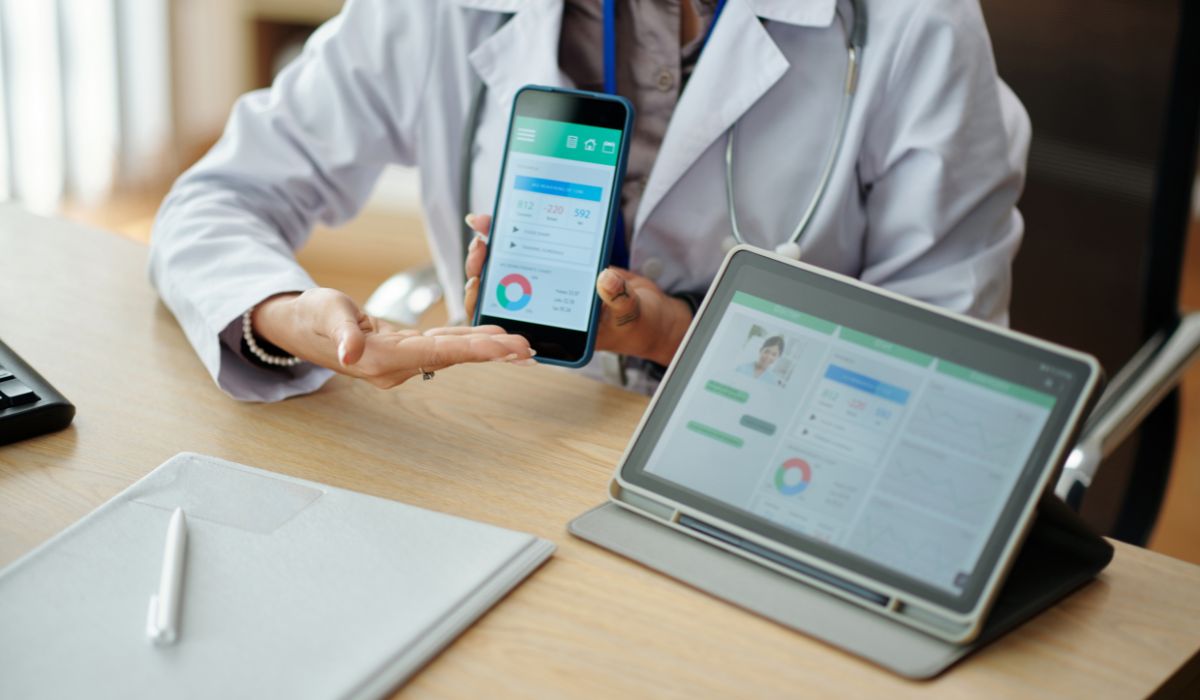Going to the doctor isn’t exactly anyone’s idea of a good time.
You call a clinic. They don’t pick up. You try again. You finally get through, and the next available slot is five days away. You show up, fill out a form for the 10th time, and then wait 40 minutes past your appointment.
Sound familiar?
Healthcare has always had a “systems problem,” and patients have quietly put up with it for years. But not anymore.
Now, thanks to mobile apps in healthcare, people are getting faster access to care, fewer delays, and a whole lot less frustration. Honestly, it's about time.
Why Is Everyone Talking About Healthcare Apps?
Because they work.
They solve the basic, annoying problems that patients deal with every day. Booking appointments, getting test results, asking a quick question, getting reminders to take meds — these aren’t complicated needs. But the old systems made them feel like a huge chore.
That’s where healthcare apps come in — to make all of it easier. Cleaner. Smarter.
Here’s how they’re actually helping:
1. Appointments That Don’t Require Five Calls and a Prayer
You open the mobile apps in healthcare, check available slots, tap to book, and done. That’s it.
No calling a receptionist. No, being told to “call back after lunch.” No miscommunication. You even get reminders so you don’t forget.
2. Messaging Your Doctor Without Playing Phone Tag
Ever just want to ask your doctor, “Hey, is this side effect normal?” or “Should I be worried about this?”
With a good mobile apps in healthcare, you can just shoot them a message. No waiting days for a response. No unnecessary visits. Just clarity when you need it.
This isn’t just about convenience — it can stop minor issues from turning into major ones.
3. Your Health Records Are Always in Your Pocket
With mobile apps in healthcare, prescriptions, blood test results, and previous diagnoses — everything is in one place. No more digging through email attachments or bringing a giant file to every appointment.
You’d be surprised how much smoother your care becomes when everyone (including you) is looking at the same info.
4. Your Phone Reminds You to Take Your Meds — Because You’ll Forget
Let’s not lie — we all forget.
Whether it’s antibiotics, blood pressure pills, or that vitamin D supplement you promised your doctor you’d take… most people miss doses. Mobile apps in healthcare can send gentle nudges so you actually stay on track.
Some even track your symptoms or vitals, so you can share accurate updates during your next visit.
5. Telehealth: Because Not Everything Needs an In-Person Visit
This one exploded during COVID, and it’s here to stay.
For a lot of issues — like skin rashes, minor infections, or follow-ups — you don’t need to sit in traffic and wait in a crowded lobby. A quick video call with your doctor on the app can sort it out.
It saves time, energy, and in many cases, your sanity.
What’s Next? The Future Looks Even Smarter
We’re already seeing apps that use AI to analyze symptoms, suggest possible conditions, or flag health risks based on your wearable data. Wild, right?
Soon, your mobile apps in healthcare might detect changes in your heart rate, ask how you’re feeling, and suggest seeing a doctor before you even notice something’s wrong.
It’s not about replacing doctors. It’s about giving them better tools and giving you more control over your health.
Final Thought: Healthcare Shouldn’t Be This Hard — and Now, It Doesn’t Have to Be
Nobody loves going to the doctor. But it shouldn’t feel like a fight just to get care.
Mobile apps in healthcare are making things better, not perfect, but better. They’re putting patients back in control, cutting the BS, and finally making healthcare feel a little more human.
If you're a clinic or hospital and you're still operating like it’s 2005, take the hint. Your patients are on their phones. If you're not there too, you’re already behind.
Have a look at
our website for more details.

